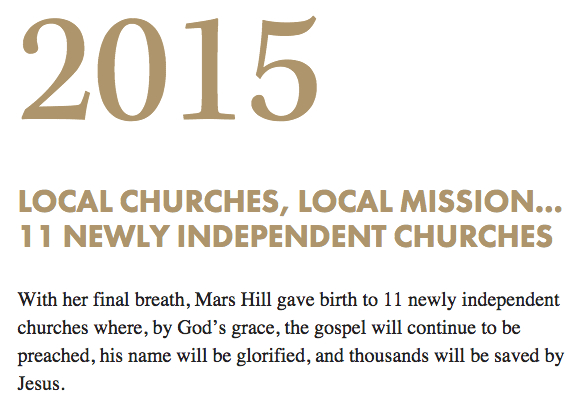Preston Yancey is young.
Well, relative to me anyway.
I’m pretty sure he’s ten years my junior which both solidifies the already pretty solid fact that I am cresting the fearsome peak of mid-life (and making damn good time), and confirms my suspicion that “millennials,” however one establishes the birthdate range, are truly a generation behind those of us who took a few breaths in the 70’s. Which means they are far from peaking: they are a generation on the rise.
Preston’s first book is impressive, and important, precisely because it belongs to this insurgent generation. In my mind it’s a definitive millennial memoir. The writing is skillful and creative, bearing none of the weaker traits that usually mark a rookie outing in the genre, and it draws the reader into nuanced layers of story that verge on the poetic throughout. Yes, it’s about finding and losing and finding faith again in the context of college and coming of age. But no, it’s not just a recycling of Blue Like Jazz a decade or so later.
In fact, Yancey’s book presents an important evolution on the kind of thinking that dominated the memoirs and church planter hagiographies (see Driscoll and Bell) of the early aughts. Blue Like Jazz, for instance, was the tale of young Don’s hunt for his nonreligious Christian spirituality which he seemed to find not in any connection to the past but a new and revolutionary enjoyment of creation, culture, and (nonreligious) people in the present. Likewise, the book-writing church planters of the period imagined themselves as saving the dead church through radical new approaches, with exponential church-growth results. But while Preston has stories that reflect this kind of thinking, it’s precisely for the purpose of correcting it.
Tables in the Wilderness is, then, a cautionary tale about the immature idealism that can infect all of us (and probably infected the whole lot of us on the verge of generations X and Y) and our need for something far more substantial.
The author finds this substance in the liturgy, the Tradition, the “walls of Zion” (161), and ecumenical breadth. But we must all find it somewhere.
Particularly poignant in this regard is Preston’s tale of the rise and fall of his college church plant, The Well. If my calculations are correct, Preston was probably planting his church right around the time I was planting mine, though ten years his senior at the time. It’s interesting how the cultural wave matters more than age in this case, because his experience resonates deeply with my own. It’s even more interesting that the lessons I’ve only just recovered from learning Preston got out of the way during his undergrad!
But consider these quotes:
We weren’t shy about our ambitions. We would meet for weekly coffees to plan, which we called staff meetings. We made email signatures that announced us as co-pastors of The Well. We had Addison draw up sketches of a possible logo. We started a Facebook page. We told professors that we would not be able to make certain events because we were responsible for a church.
Somewhere in this we stopped praying. I am uncertain of when, but it happened.
Avery and I liked to joke that we were the sons of thunder from the Gospels, James and John. We thought that meant we were given the power to call down fire from heaven and believed that was in and of itself a sort of perpetual holiness. So we stopped trying. We were God’s anointed and these were the days of awe. What else did we need? (71)
This anecdote likely describes most church planters and church plants between 2003 and 2010, fueled as we were by the legend of the Mars Hills, et al. And so often, this is where we land:
This all seems such a waste. Starting a church. I suppose much of it was, in a way, but there were moments of good.
There was the time the guy who was visiting from another school came to The Well and asked if I would pray for him, who kept in touch for a year, who reached out again and again as he struggle-questioned his way toward Home.
There was the hope in Pastor Joe’s eyes.
There was the weekend when Avery, Isabelle, Celia, and I worked with a youth group. I got to wrangle a dozen junior high boys, run them around a ranch house for hours with cardboard tubes for swords and shaving cream for epic battles of masculine feat. At the end of it, they gave me a stone square with a passage from Proverbs engraved on the front, their signatures on the back. It still hangs on my wall. One of the boys asked Jesus into his heart that weekend.
I share this as a means of saying that it was not a waste.
It never is.
I didn’t see it at the time.
I think I am only starting to see it now. (89)
The ministry performed in the midst of our immature idealism is indeed not a waste. And our church plants, whether they succeeded or failed, are not wastes. But there is a shift in thinking upon us, and God is calling us into greater maturity. He is calling us to connect again with the past, to root down into greater substance.
Really, he’s calling for the death of our idealism, so that there might be a resurrection of something better and enduring.
Tables in the Wilderness is a glimpse of this shift, and I am grateful for Preston’s wisdom (beyond his years) in writing it.
And if you are looking for evidence of this shift in the generation behind those of us old enough to see Return of the Jedi in the theater, then look no further than Preston Yancey, and pick up this book.












